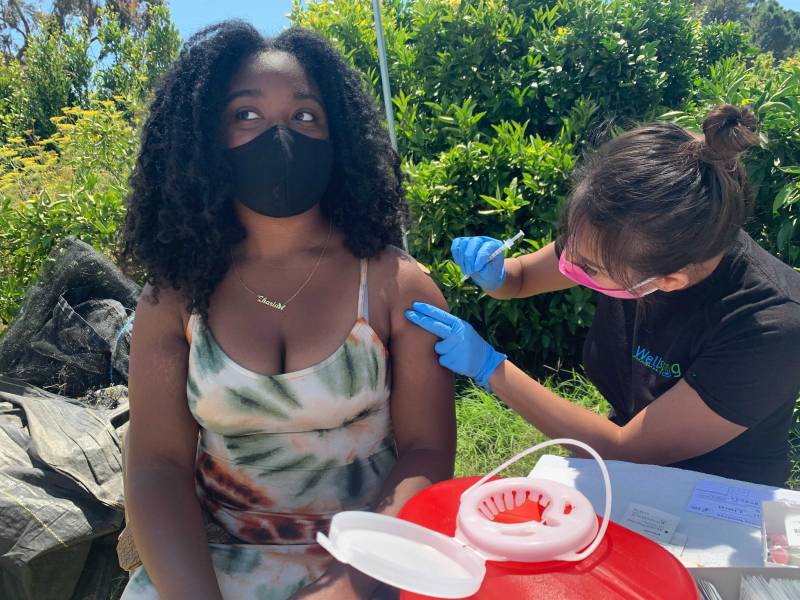“In recent days, I have seen new scientific data from recent outbreak investigations showing that the delta variant behaves uniquely differently from past strains of the virus that cause COVID-19,” CDC Director Dr. Rochelle Walensky said during a media briefing on Tuesday.
The U.S. vaccine supply is ample, but only about half of all Americans, and half of Californians, are fully vaccinated.
And vaccination rates have slowed substantially. In the early days of the rollout, demand for shots far outweighed supply. Now, public health officials are grappling with the opposite problem.
Mass vaccine sites have shut down in urban areas because long lines shrunk to nothing. The same is true in many rural counties. In Lassen County, for instance, fewer than 20% of residents are fully vaccinated. And across the Central Valley, many counties have plateaued at a full vaccination rate of around 35%.
“There are places in the world and people in countries that would give their right arm to get a vaccine,” said Braxley, with tears in her eyes. She apologized for getting emotional. It’s not usually her style, she says, but it’s been a long year.
The state’s hot spot is, again, Los Angeles County, where thousands of people are now testing positive every day.
“I’m running around like a chicken without a head,” said Dr. Dinora Chinchilla, a pulmonologist specializing in critical care in Los Angeles County.
She says she’s drowning under her current load of patients, all of whom are battling the virus. The situation is sparking flashbacks for her to last winter’s peak.
“It gives me tremendous anxiety to think that we’re going the other direction again,” she said.
The night after her interview, Chinchilla sent a text reporting that two more of her patients had died.
A Daunting Task Ahead
Gov. Gavin Newson says he’s not only exhausted, but floored that people are still hesitant about getting the vaccine.
“With the deadliness and efficiency of the delta virus, you’re putting other innocent people’s lives at risk, you’re putting businesses at risk, you’re putting at risk the ability to educate our kids by getting them back in person full time for in-person instruction,” he said during a media briefing on Monday. “You don’t have a choice to go out and drink and drive and put everybody else’s lives at risk, that’s the equivalent.”

